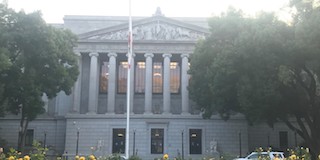The reader of this article surely appreciates that if one violates probation, there is the potential for penalties. The court (the judge) can simply reinstate the person on probation with a warning, the court can reinstate the person with a sanction such as additional community service or a longer term of probation, or the court can revoke probation and sentence to remand someone to jail or prison.
The Gist of This Article: A judge cannot order more restitution to be paid if a person on probation is found in violation of probation. Whatever the original restitution ordered is, that amount should not be increased just because someone violates probation. However, on a violation of probation, the judge may order that the probationer pay increased fines or fees.
In the case of Lisa Marie Preston, the judge in Calaveras County revoked probation in three cases, imposed an aggregate prison term of five years and four months, and imposed $900 in additional restitution fines.
Originally, the judge imposed a $200 restitution fund fee in the first case, under Penal Code § 1202.4. In that case, wherein Ms. Preston pled guilty to felony forgery (Penal Code § 470), the court imposed three years of state prison, but suspended imposition of the prison sentence and placed Ms. Preston on five years of formal probation.
 Court of Appeal Third Appellate District Sacramento
Court of Appeal Third Appellate District Sacramento
In the second case, Preston also pled guilty to forgery (Penal Code § 470(d)). The court placed Preston on five years of formal probation, conditioned upon her serving one year in county jail. A $200 restitution fine was then also imposed.
In the third case, Preston pled guilty to one count of felony commercial burglary (P.C. § 459) and one misdemeanor count of false representation of identity to a police officer (Penal Code § 148.9(a)). The judge put Preston on five years of formal probation and imposed a $200 restitution fine.
All terms of probation were to run concurrent once Preston finished her year in county jail.
Two years after entry of the pleas, the probation department filed petitions to revoke Preston’s probation in all three cases.
After a hearing on all three cases, the judge sustained the petitions and revoked probation. The judge sentenced Preston to five years, four months in state prison and $900 more in restitution.
Ms. Preston appealed on many grounds to the Third Appellate District Court of Appeals in Sacramento, but this article will only discuss her appeal of the additional $900 in restitution fines ordered.
The Third Appellate District court agreed with Ms. Preston that the trial court issued an order of $900 more in restitution. The appellate court considered Penal Code § 1202.4(b), § 1202.44 and § 1202.45 and how restitution fines are imposed.
It also considered
People v. Chambers (1998) 65 Cal. App. 4th 819, 822, which interpreted the above Penal Code sections. In
Chambers, defendant pleaded no contest to first degree burglary and was granted probation. As a condition of probation, Chambers was ordered to pay a $200 restitution fine.
Four years later, the trial court revoked probation, sentencing Ms. Chambers to state prison and imposed a second restitution fine of $500. Chambers then appealed. The appellate court held that because the first restitution fine remained in effect, the trial court had no authority to impose a second restitution fine. The appellate court held there that there is no [statutory] provision, but noted that a judge certainly may impose additional fines other than restitution. Chambers at 823.
In Preston’s appeal, the third Appellate District Court cited to
Chambers, holding that the additional $900 in restitution was improper because the first restitution fine remained in effect like in
Chambers. The appellate court thus struck the additional restitution ordered by the trial court.
It is important to note to the reader that the restitution fines imposed were not to be paid to direct victims. Instead, the orders related to payments into a general restitution fund. However, had the trial court, in ruling on the probation violations, ordered additional fines, such added fines may have been proper.
The citation for the Third Appellate District Court ruling discussed above is People v. Lisa Marie Preston (3d App. Dist., 2015) 239 Cal.App.4th 415.
For more information about probation violations, click on the following articles:
- Second Probation Violation Hearing Improper After First Hearing Ended
- Restitution in Domestic Violence Case Does Not Violate Harvey Rule
- What Punishment Do I Face for a Probation Violation?
Contact us.  Court of Appeal Third Appellate District Sacramento
Court of Appeal Third Appellate District Sacramento